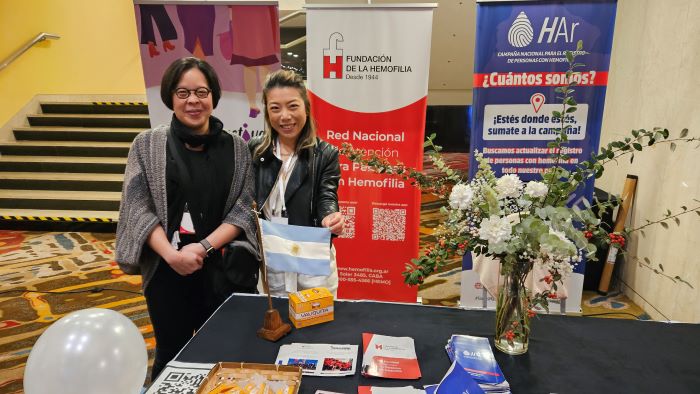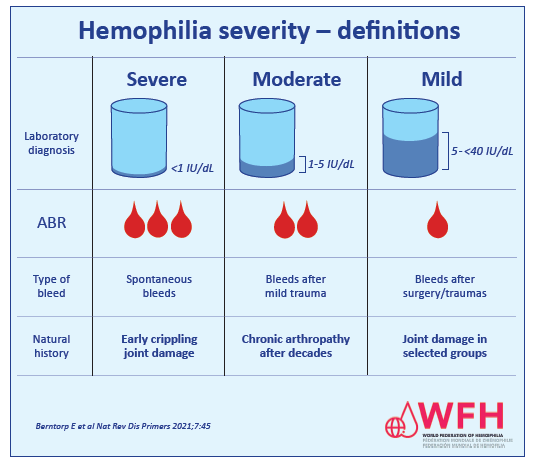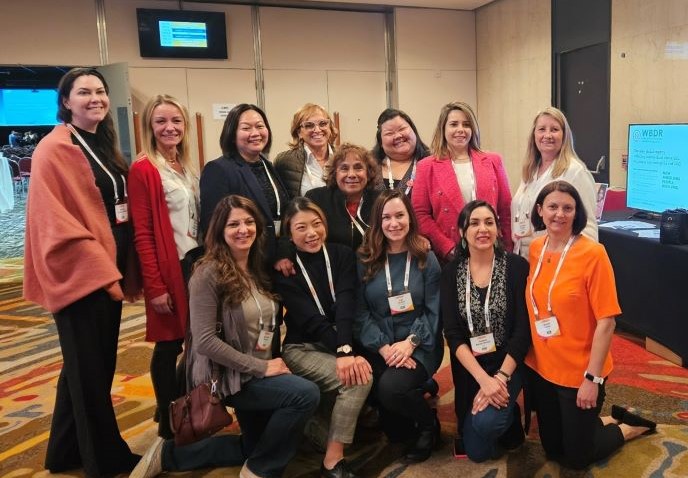YU-HSUAN LIN (YOSHI)
Yu-hsuan Lin (Yoshi) is Haemophilia Nurse Consultant, Haemophilia Treatment Network SA, at the Royal Adelaide Hospital, South Australia.
WFH 2023 Comprehensive Care Summit: New Developments in Bleeding Disorders and MSK
10-12 May 2023, Buenos Aires, Argentina
The World Federation of Haemophilia (WFH) 2023 Comprehensive Care Summit was an amazing event, full of vibrant energy and excitement, with fabulous talks and knowledgeable speakers from all over the world. I greatly appreciated the opportunity to hear and connect with the many nurse specialists who were involved in this conference and gave presentations about patient management from a nursing perspective.
For me the highlights were the sessions on ageing, informed patient consent and the current challenges in caring for patients with bleeding disorders, for example, where new haemophilia treatments essentially allow patients with severe haemophilia to become more like patients with mild haemophilia. Apart from all the great sessions, it was amazing to meet with nurses from many parts of the world. We even spent International Nurse’s Day together!

Dr Liane Khoo and Yu-hsuan Lin (Yoshi) at the Congress
Plenary: Aging
Challenges and experiences of aging: I’m still here, now what?
Speaker ~ Mark Skinner, President and CEO, Institute for Policy Advancement Ltd, USA
Plenary: Comprehensive care of aging
Chair ~ Mark Skinner
Speakers: physiotherapists: Felipe Contreras, Chile, Piet de Kleijn, Netherlands; social worker: Susan Cutter, USA; nurse: Niamh Larkin, Ireland; haemophilia organisation: William McKeown, UK (Access And Service Improvement Ambassador); dentist: Lochana Nanayakkara, UK
The session on ageing considered some of the challenges both for our older patients and the services and care we provide in our Haemophilia Treatment Centres (HTCs). Ageing is a fact that we are all facing from day to day, but until relatively recently it was a foreign concept for a lot of our older haemophilia patients. In earlier years, this group of patients were told that their life expectancy was short, with the result that some decided to not start a family or participate in the community.
So Mark Skinner’s presentation asking ‘I’m still here, now what?’ struck me and made me reconsider what we can do as health professionals to help our older patients living with bleeding disorders. The speakers discussed the Multidisciplinary Team and asked the burning question: ‘have we got the right or appropriate Multidisciplinary Team to help our ageing patients?’.
In the Adult Haemophilia Treatment Centre South Australia we currently have haematologists, a physiotherapist, a haemophilia nurse consultant, a social worker and a data manager as core members of our team. But as our patients get older, we need to involve more health professionals like psychologists, ENT (ear, nose, and throat) specialists, rheumatologists, cardiologists and geriatricians in the hospital setting, but we also need to connect with services in the community like GP services, local health centres, community nurses, local pharmacists and dentists.
People with bleeding disorders, like everyone, need social support from the community, family and health care providers, and may have even greater needs due to their fragility and mental health issues, accumulated over the years of negative and sometimes traumatic experiences. Studies reported in the session showed 88% of older haemophilia patients have unexpected longevity. Some now find themselves lonelier and more disconnected from society.
Assisting our patients to grow older with dignity and support them with what matters as they age is an ongoing issue for health professionals in HTCs. We also need to consider how early we should start this conversation about ageing with our patients, and how this translates into ongoing education materials for our patients, from younger age groups to older.
GETTING OLDER
|

I was also very interested in the presentations on gene therapy from the perspectives of patients and nurses, especially those related to the processes involved: preparation, screening, education, consenting, post gene therapy monitoring and ongoing support.
Education and shared decision-making with our patients were the focus of these sessions.
Multidisciplinary session: Informed patient consent
Chair ~ Keith Gomez, consultant haematologist, UK
Nurse perspective
Speaker ~ Kat Molitor, haemophilia Clinical Nurse Specialist, USA
Kat Molitor, Clinical Nurse Specialist from the USA, spoke about nurse responsibilities and the important role of nurses in advocating, educating and access when it comes to implementing new treatments, gene therapy and post gene therapy management. She also provided three models that could assist with partnering with patients:
She underlined that social psychological assessments are a crucial part of screening patients for gene therapy and presented the National Hemophilia Foundation's Medical and Scientific Advisory Council (MASAC) tool for this. The session raised the question about educating health professionals for the upcoming gene therapy – do they need more education to prepare adequately and would there be value in providing the Multidisciplinary Team with ongoing formal training on patient care models.
Plenary: Transitioning to mild hemophilia
Speaker ~ Maria Elisa Mancuso, haematologist, Italy
The unknowns of gene therapy, no effective new treatment options for VWD (von Willebrand disease) patients and the ‘forgotten’ group of patients with mild haemophilia are continuing to be challenges we are facing.
Dr Maria Elisa Mancuso discussed the impact of new haemophilia treatments on raising the bar of protection from bleeds in haemophilia and the transformation of the severe phenotype to mild.
She stated that patients with a trough factor VIII (8) level of 12% still have risk of bleeding spontaneously and a level of 6-7% is an even higher risk. Therefore, she suggested – based on her research findings – that prophylaxis treatment should maintain a certain high factor VIII (8) trough level at 40% or above to achieve zero bleeds and that prophylaxis treatment should also be available for mild haemophilia patients.
The new standard of prophylaxis treatment is to transition patients to mild haemophilia with a higher trough level. She noted that the challenges here are to improve current monoclonal antibody therapy and factor VIII replacement therapy with longer-acting and better recombinant products. She recommended that patients who wish to have an active lifestyle with sport and activities should also be supported with factor and on prophylaxis treatments regardless of their severity of haemophilia.

Overall, the WFH Comprehensive Care Summit experience was extraordinary and covered a wide range of issues. I found it very helpful for my role as a haemophilia nurse consultant who has only been in the role for 9 months.
I had the privilege to meet with nurses from around the world and listen to them share their experiences in their own countries. WFH is promoting treatment for all and the struggles and difficulties in getting adequate treatment for patients in some developing countries were described in this Summit. I felt greatly touched by the health professionals and patients who presented at the Summit and their contribution and dedication to the world of haemophilia.
Finally, I would like to thank our Australian Haemophilia Nurses Group, who nominated me and supported me to attend this Summit. I would also like to thank Sanofi who funded me to attend. Hopefully we can all participate in the 2024 WFH Congress in Madrid, Spain.

Nurses from around the world at the WFH Comprehensive Care Summit
Top row L to R: Marcela Ganella, Brazil; Camila Stephanes, Brazil; Janette Itaas Kemp, UK; Andrea De Almeida Sambo, Brazil; Mariana Takahasi Hosokawa, Brazil; Tayane Oliveira Reboucas, Brazil; Collette Pigden, UK
Middle row: Josefina Santillan, Argentina
Bottom row L to R: Michelle Mackey-Newfoundland, Canada; Yu-Hsuan (Yoshi) Lin, Australia; Kat Molitor, US; Valeska Becker, Chile; Niamh Larkin, Ireland
Haemophilia Foundation Australia acknowledges the Traditional Owners and Custodians of Country throughout Australia, the land, waters and community where we walk, live, meet and work. We pay our respects to Elders past and present and extend that respect to all Aboriginal and Torres Strait Islander peoples.
Sign up for the latest news, events and our free National Haemophilia magazine